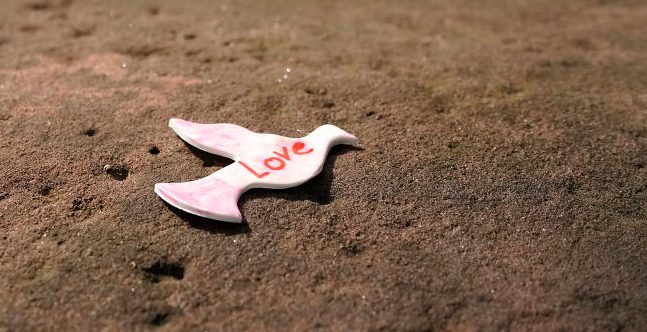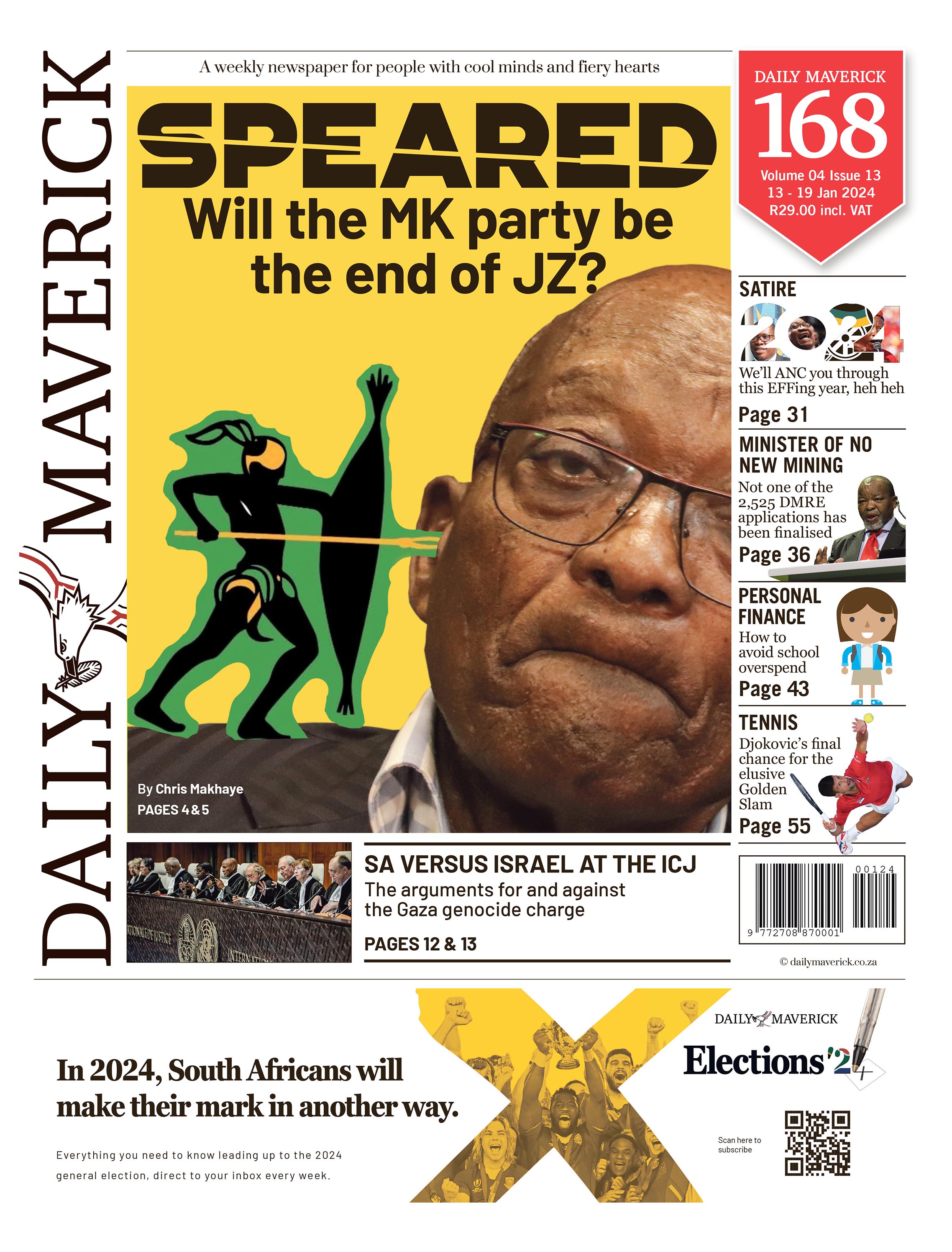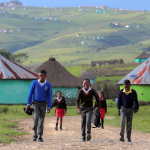POETS’ CORNER
A world tending to war: The hell where youth and laughter go

Aggression is inherent in human societies, from the hunter-gatherer onwards. When this tendency explodes in nations with nuclear capabilities, we had best take notice – and remember the cost of violence.
Being anti-Semitic, racist or misogynistic should be inconceivable to all. It denotes hating individuals for being who they are, rather than for their actions. This mindset becomes even more reprehensible when it escalates to violence, or even murder. Such acts are wrong and morally repugnant, with few exceptions like in cases of self-defence. One of the gravest concerns arises when the state sanctions killing, especially where legal due process is sidestepped or legal representation is denied. Think of lynchings, in the good ol’ days. The death penalty becomes not just an ethical dilemma but also a miscarriage of justice.
Personal tragedy has in the past struck my family – with the murder of my brother in his youth and of my three-year-old nephew, then an attempt on our father’s life. Despite these wicked acts, I harbour no desire for revenge against the perpetrators, or ill will towards their families. Retribution is not a path I choose to follow. Furthermore, the bane of war, whether it be internal or on a regional or continental scale, is yet another manifestation of this destructive ethos. Declaring war is virtually some nation proclaiming its intent to seize what it covets by force, signalling a real disregard for diplomacy and peaceful resolution.
Bent on destruction
As a teenager, I read a book by Isaac Asimov that left a lasting impression on me. It began with a slow, evolutionary tale of human societies, starting from hunter-gatherer groups akin to our San or the Yanomami of the Amazon. Over time, these groups evolved into villages, which gradually merged into cities, setting the stage for larger societal constructs. Throughout this progression was the prevalence of conflict, wars between various entities, sometimes for definite reasons, other times without obvious cause. This pattern of conflict has persisted through the ages, evolving in scale and complexity. Today, it manifests in wars between countries or alliances of nations.
As we step into the early days of 2024, this pattern of conflict persists across the globe. Russia is still launching attacks on Ukraine, Israel is engaged in military actions in Gaza, and North Korea is rattling its military sabre at South Korea and the US. Alarmingly, all three of these nations possess nuclear capabilities. This landscape of conflict underscores a recurring theme in human history: the propensity for war, regardless of the scale or epoch. It’s a reflection of our enduring struggle to find peaceful resolutions to conflicts and the persistent danger of escalating violence, in an age when the stakes are higher than ever.
The lyrics to Bob Marley’s hit song War are borrowed almost wholly from a speech Ethiopian emperor Haile Selassie I made before the United Nations General Assembly on 4 October 1963. “Until there is no longer first-class / Or second-class citizens of any nation. / Until the colour of a man’s skin, / Is of no more significance than / The colour of his eyes, / I’ve got to say war.” There can be authentic reasons for fighting as often as there can be illegitimate ones. Black Africans in apartheid South Africa were given no choice but to pick up their umkhonto (spear) in a last resort to reclaim their fundamental rights and dignity.
In the US there’s a war memorial that consists of two adjoining walls 75m long. Both are made from well-polished black granite panels, most of which bear the names of the honourees. “Names shimmer on a woman’s blouse / but when she walks away / the names stay on the wall.” That’s the voice in Vietnam War veteran Yusef Komunyakaa’s poem Facing It. The poem recounts his first visit to that memorial.
The toll of terror
War is a disgrace, like the barbarity of burning individuals at the stake or the brutality of domestic abuse. The causes of political violence vary: sometimes it’s the act of a rogue commando silencing dissent against a tyrannical regime; other times it’s fuelled by religious zealotry, reminiscent of the Crusades, or of modern-day religious radicalism. Despite teachings like the Sermon on the Mount, war seems an inevitable scourge to cease only after death, since the dead do not fight. The experience of it indelibly changes those who endure it and survive, because “the war speaks at night / with its lips of shredded children, / with its brow of plastique / and its fighter jet breath”. So says Tyehimba Jess’s Mercy, a poem that so characterises war that I often unintentionally just title it War.
Mercy
By Tyehimba Jess
the war speaks at night
with its lips of shredded children,
with its brow of plastique
and its fighter jet breath,
and then it speaks at daybreak
with the soft slur of money
unfolding leaf upon leaf.
it speaks between the news
programs in the music
of commercials, then sings
in the voices of a national anthem.
it has a dirty coin jingle in its step,
it has a hand of many lost hands,
a palm of missing fingers,
the stump of an arm that it lost
reaching up to heaven, a foot
that digs a trench for its dead.
the war staggers forward,
compelled, inexorable, ticking.
it looks to me
with its one eye of napalm
and one eye of ice,
with its hair of fire
and its nuclear heart,
and yes, it is so human
and so pitiful as it stands there,
waiting for my hand.
it wants to know my answer.
it wants to know how i intend
to show it out of its misery,
and i only want it
to teach me how to kill.
Avoiding conflict and seeking peaceful resolutions is not just a moral imperative, but is crucial for sustainable global growth and societal wellbeing. Countries frequently engaged in war, especially prolonged conflicts, endure severe repercussions. Even wealthy, war-happy nations such as the US, with its history of 108 wars, according to Wikipedia, suffer indirect consequences such as economic strain and the return of traumatised soldiers. The resources spent on warfare could instead foster progress in education, healthcare and economic development. War’s toll is vast: loss of life, civilian and combatant agony, economic instability, ethical crimes, environmental damage and the erosion of human rights.
Yet, if our inherent nature hasn’t changed since our hunter-gatherer days, what solution exists? Perhaps unity against a common, external menace is our only spur for change. History shows Europeans, Africans and Native Americans uniting against distinct invaders. Maybe an exceptional, external challenge – an alien invasion or a devastating virus – is what it’ll take to unite humanity across divisions of ethnicity, religion and nationality. In today’s world, it seems only a profound shock can jolt us into collective harmony.
Sun to God
By Ladan Osman
The children walked.
Then they began to run.
Why are we running, one asked?
No one knew. They ran faster.
They began laughing.
Why are we laughing?
Not one knew. They laughed more.
It was the eve of war but they didn’t know.
The children walked.
The children’s parents walked.
The parents’ parents walked.
Their shadows spilled ahead.
Their shadows lagged behind.
Then, they began to run.
No one was laughing. DM
Rethabile Masilo is a Mosotho poet from Lesotho who lives in Paris, France.
This story first appeared in our weekly Daily Maverick 168 newspaper, which is available countrywide for R29.





















Isaac Asimov said “Violence is the option of the incompetent”Lot of incompetent individuals on this earth unfortunately.Evil will always exist,but it manifests mostly through greed,and letting other people think for you
I can’t agree with you and with Mr Asimov enough. Thanks for your comment.